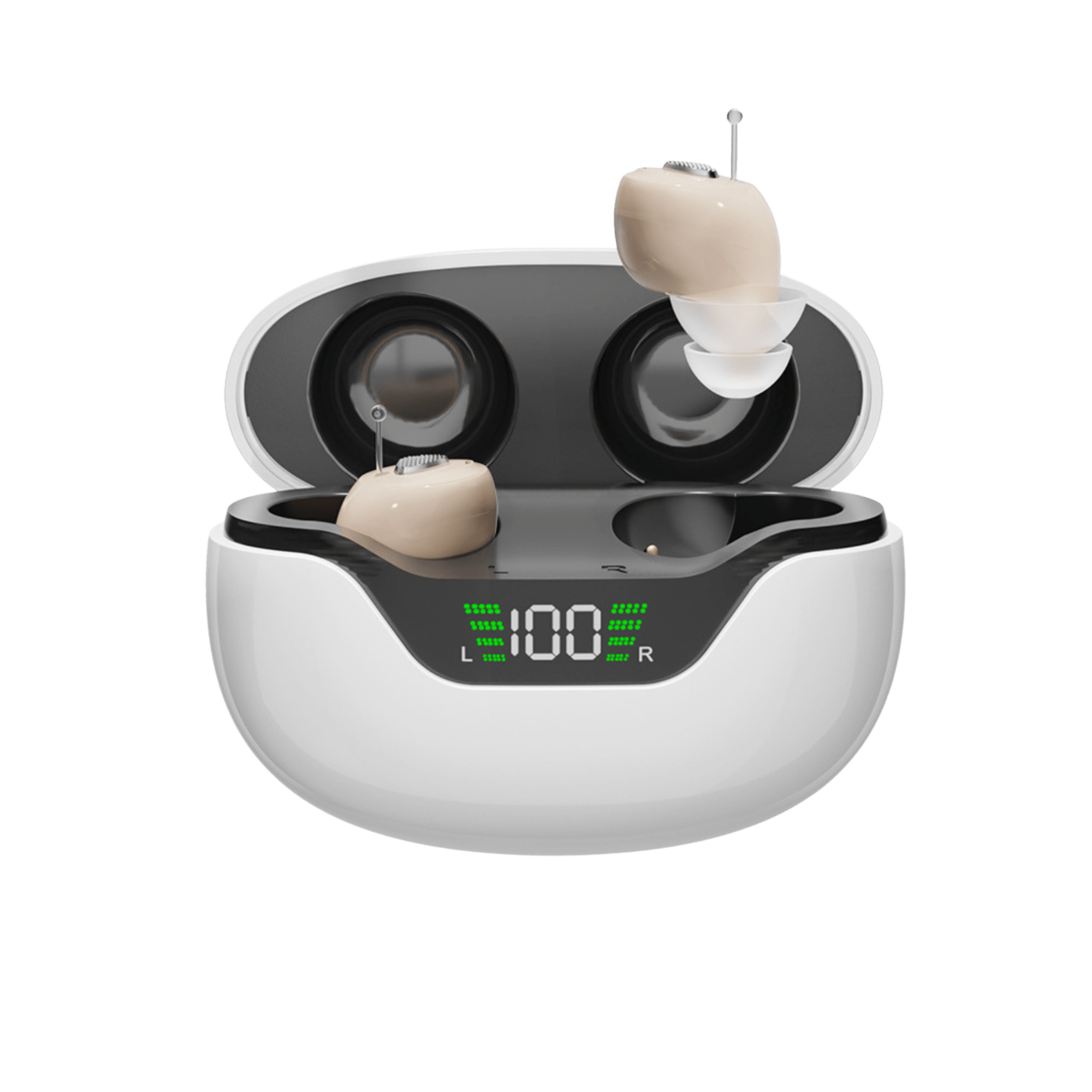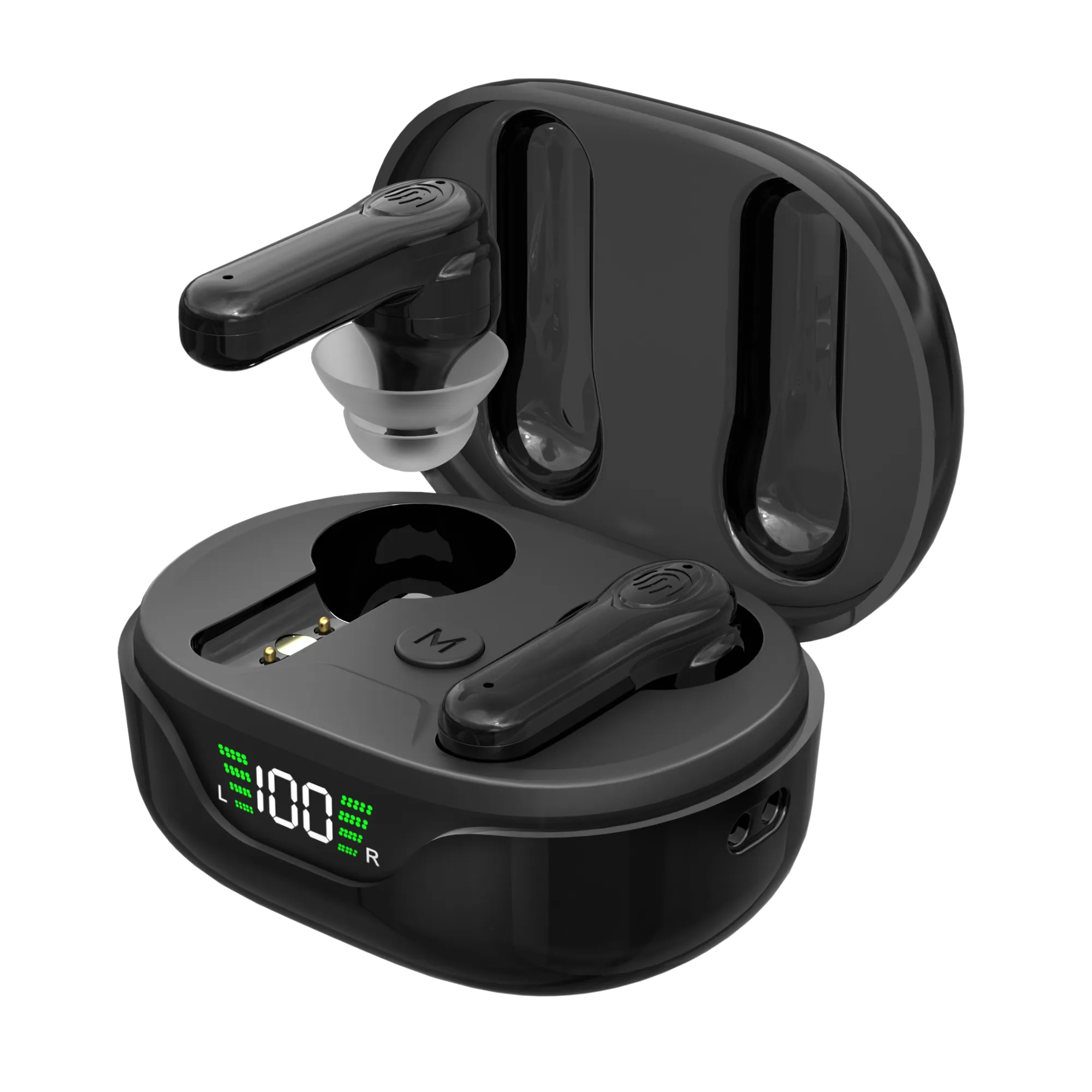The acquisition of a hearing aid, despite the fact that it is essential for many people who are suffering from hearing loss, may be a significant financial endeavor. Individuals will have an easier time gaining access to the necessary hearing care since a wide variety of insurance and assistance programs are available, each of which may offer some level of coverage or help. Plans that cover pre-existing conditions, long-term care, supplemental insurance, health reimbursement arrangements (HRAs), state-funded programs for seniors, and non-profit organizations or foundations are some examples of these types of insurance. Let's go through each one in depth so that we can provide a more accurate picture of the current state of hearing aid coverage.
Hearing Aids and Health Insurance Policies for Pre-Existing Conditions
Hearing aids could be covered by health insurance policies for those who have pre-existing conditions if the policy allows coverage for certain ailments. Hearing loss is one of the pre-existing conditions that is protected by the Affordable Care Act (ACA), which prohibits health insurance providers from denying coverage or charging extra to individuals because of their condition.
Hearing aids are not specifically required to be covered by health insurance plans that comply with the Affordable Care Act (ACA). However, some insurance providers may choose to include hearing aids as part of their coverage offers, particularly in states that have mandated coverage for hearing aids. In order to have a good understanding of your coverage, it is absolutely necessary to go over the specifics of your plan or speak with a representative from the plan.
Hearing aids and health insurance for long-term care
The majority of the services that are normally not covered by standard health insurance, Medicare, or Medicaid are covered by long-term care insurance policies. These services include aid with everyday tasks as well as care for the inmate in a correctional setting. Hearing aids are not typically covered by the majority of long-term care insurance policies; however, the cost of treatment that is associated with managing hearing loss may be covered by these policies. It is strongly suggested that you check the particulars of your policy or consult with a representative from your insurance company in order to obtain further insight into this matter.
The monetary benefits that are provided by these plans can be used however you see fit, and there is a possibility that they might be put toward the purchase of hearing aids. However, in general, these plans do not provide direct coverage for hearing aids. You should go over the specifics of your supplemental insurance policy to have a clearer idea of what is and is not covered.
Hearing aids and Health Reimbursement Arrangements (HRAs), to provide two examples.
Health Reimbursement Arrangements, often known as HRAs, are programs that are sponsored by employers that pay employees for medical expenditures that are incurred but are not covered by the basic insurance plan offered by the firm. An HRA is a type of account that can only receive contributions from the employer, in contrast to health savings accounts (HSAs) and flexible spending accounts (FSAs).
HRAs offer a great deal of leeway and can be put toward the payment of a broad variety of medical costs, including hearing aids, as outlined by the Internal Revenue Service (IRS). As a result, if you have an HRA, you may be able to utilize it to reduce the overall cost of purchasing hearing aids for yourself. Be careful to inquire regarding the use of HRA funds for hearing aids with either your employer or the administrator of the plan.
Hearing Aids and Senior Citizens Participating in State-Funded Programs
Hearing aids are only one of the many ways that older citizens can receive assistance through one of the several state-sponsored programs that are available. Hearing aids are provided by certain state vocational and rehabilitative services programs, for example, to older citizens and other persons who meet the program's eligibility requirements.
Hearing aids for seniors may be covered by Medicaid in some states, however the policies surrounding this matter vary greatly from one state to the next. Additionally, several governments have created assistance programs tailored expressly to meet the financial needs of older citizens who use hearing aids. To gain a better understanding of the choices that are available to you, speak with a representative of your local health department or an agency that helps seniors in your state.
Hearing Aids and Organizations Serving the Public That Are Not-for-Profit
There is a wide range of not-for-profit organizations and charities that are committed to supporting persons who suffer from hearing loss. Those who are eligible for the program often receive financial assistance for hearing aids. A few examples are the Starkey Hearing Foundation, the Lion's Club, and the Miracle-Ear Foundation. These are only a few of the many organizations that do this kind of work.
It is vital to conduct extensive research on each available choice and make direct contact with these organizations to obtain information on their programs in order to satisfy the eligibility requirements and application procedures that are specific to each organization.
To summarize, the acquisition of hearing aids does not have to put a strain on one's financial situation. There is a wide variety of prospective coverage alternatives and assistance programs accessible, such as pre-existing condition plans, long-term care insurance, supplementary insurance, HRAs, state programs for seniors, and non-profit organizations. Because of this, there are a lot of different routes that may be investigated. It is really important to conduct your research, question everything, and seek the assistance of a professional when necessary. After all, having better hearing improves your entire quality of life, which makes investing in better hearing a worthwhile endeavor.
Hearing Aids and Health Insurance Policies for Pre-Existing Conditions
Hearing aids could be covered by health insurance policies for those who have pre-existing conditions if the policy allows coverage for certain ailments. Hearing loss is one of the pre-existing conditions that is protected by the Affordable Care Act (ACA), which prohibits health insurance providers from denying coverage or charging extra to individuals because of their condition.
Hearing aids are not specifically required to be covered by health insurance plans that comply with the Affordable Care Act (ACA). However, some insurance providers may choose to include hearing aids as part of their coverage offers, particularly in states that have mandated coverage for hearing aids. In order to have a good understanding of your coverage, it is absolutely necessary to go over the specifics of your plan or speak with a representative from the plan.
Hearing aids and health insurance for long-term care
The majority of the services that are normally not covered by standard health insurance, Medicare, or Medicaid are covered by long-term care insurance policies. These services include aid with everyday tasks as well as care for the inmate in a correctional setting. Hearing aids are not typically covered by the majority of long-term care insurance policies; however, the cost of treatment that is associated with managing hearing loss may be covered by these policies. It is strongly suggested that you check the particulars of your policy or consult with a representative from your insurance company in order to obtain further insight into this matter.
Complementary plans to medical insurance and hearing aids
Plans that fall under the category of supplemental insurance are intended to fill in any coverage gaps left by primary health insurance. They can be responsible for paying for out-of-pocket medical expenditures including deductibles, co-payments, and co-insurance. A monetary reward that is either paid out over the course of the policy's duration or received all at once may be included in certain supplemental insurance policies.The monetary benefits that are provided by these plans can be used however you see fit, and there is a possibility that they might be put toward the purchase of hearing aids. However, in general, these plans do not provide direct coverage for hearing aids. You should go over the specifics of your supplemental insurance policy to have a clearer idea of what is and is not covered.
Hearing aids and Health Reimbursement Arrangements (HRAs), to provide two examples.
Health Reimbursement Arrangements, often known as HRAs, are programs that are sponsored by employers that pay employees for medical expenditures that are incurred but are not covered by the basic insurance plan offered by the firm. An HRA is a type of account that can only receive contributions from the employer, in contrast to health savings accounts (HSAs) and flexible spending accounts (FSAs).
HRAs offer a great deal of leeway and can be put toward the payment of a broad variety of medical costs, including hearing aids, as outlined by the Internal Revenue Service (IRS). As a result, if you have an HRA, you may be able to utilize it to reduce the overall cost of purchasing hearing aids for yourself. Be careful to inquire regarding the use of HRA funds for hearing aids with either your employer or the administrator of the plan.
Hearing Aids and Senior Citizens Participating in State-Funded Programs
Hearing aids are only one of the many ways that older citizens can receive assistance through one of the several state-sponsored programs that are available. Hearing aids are provided by certain state vocational and rehabilitative services programs, for example, to older citizens and other persons who meet the program's eligibility requirements.
Hearing aids for seniors may be covered by Medicaid in some states, however the policies surrounding this matter vary greatly from one state to the next. Additionally, several governments have created assistance programs tailored expressly to meet the financial needs of older citizens who use hearing aids. To gain a better understanding of the choices that are available to you, speak with a representative of your local health department or an agency that helps seniors in your state.
Hearing Aids and Organizations Serving the Public That Are Not-for-Profit
There is a wide range of not-for-profit organizations and charities that are committed to supporting persons who suffer from hearing loss. Those who are eligible for the program often receive financial assistance for hearing aids. A few examples are the Starkey Hearing Foundation, the Lion's Club, and the Miracle-Ear Foundation. These are only a few of the many organizations that do this kind of work.
It is vital to conduct extensive research on each available choice and make direct contact with these organizations to obtain information on their programs in order to satisfy the eligibility requirements and application procedures that are specific to each organization.
To summarize, the acquisition of hearing aids does not have to put a strain on one's financial situation. There is a wide variety of prospective coverage alternatives and assistance programs accessible, such as pre-existing condition plans, long-term care insurance, supplementary insurance, HRAs, state programs for seniors, and non-profit organizations. Because of this, there are a lot of different routes that may be investigated. It is really important to conduct your research, question everything, and seek the assistance of a professional when necessary. After all, having better hearing improves your entire quality of life, which makes investing in better hearing a worthwhile endeavor.





